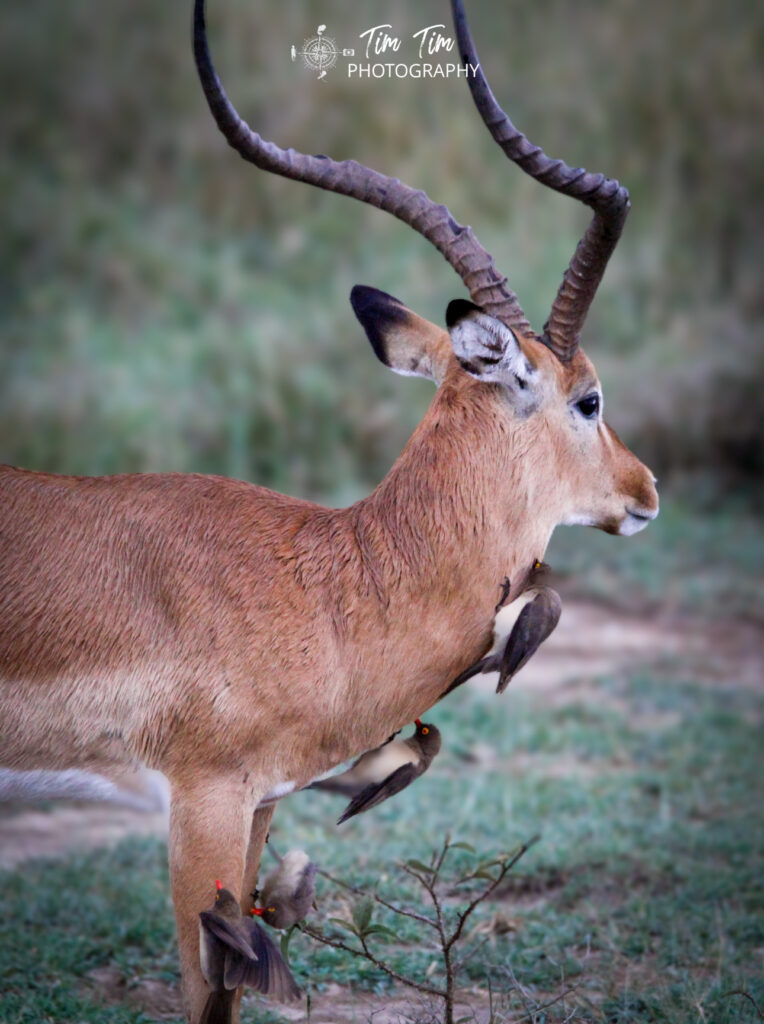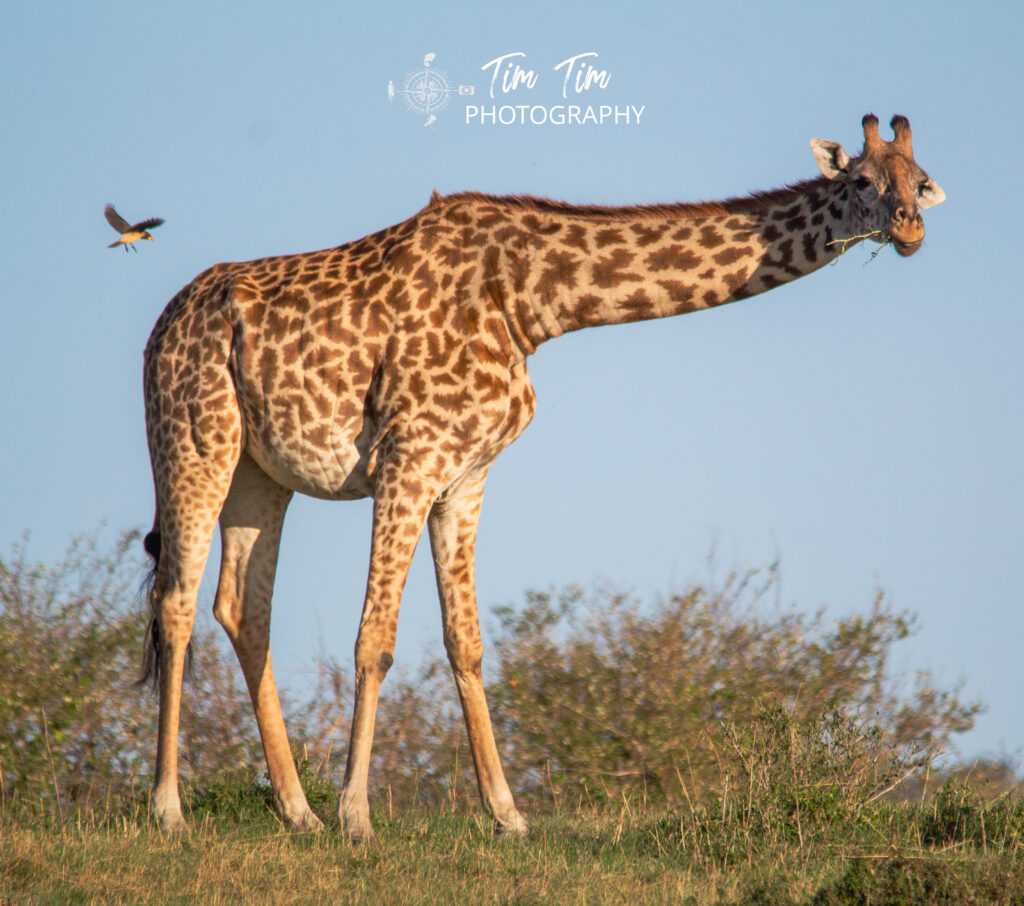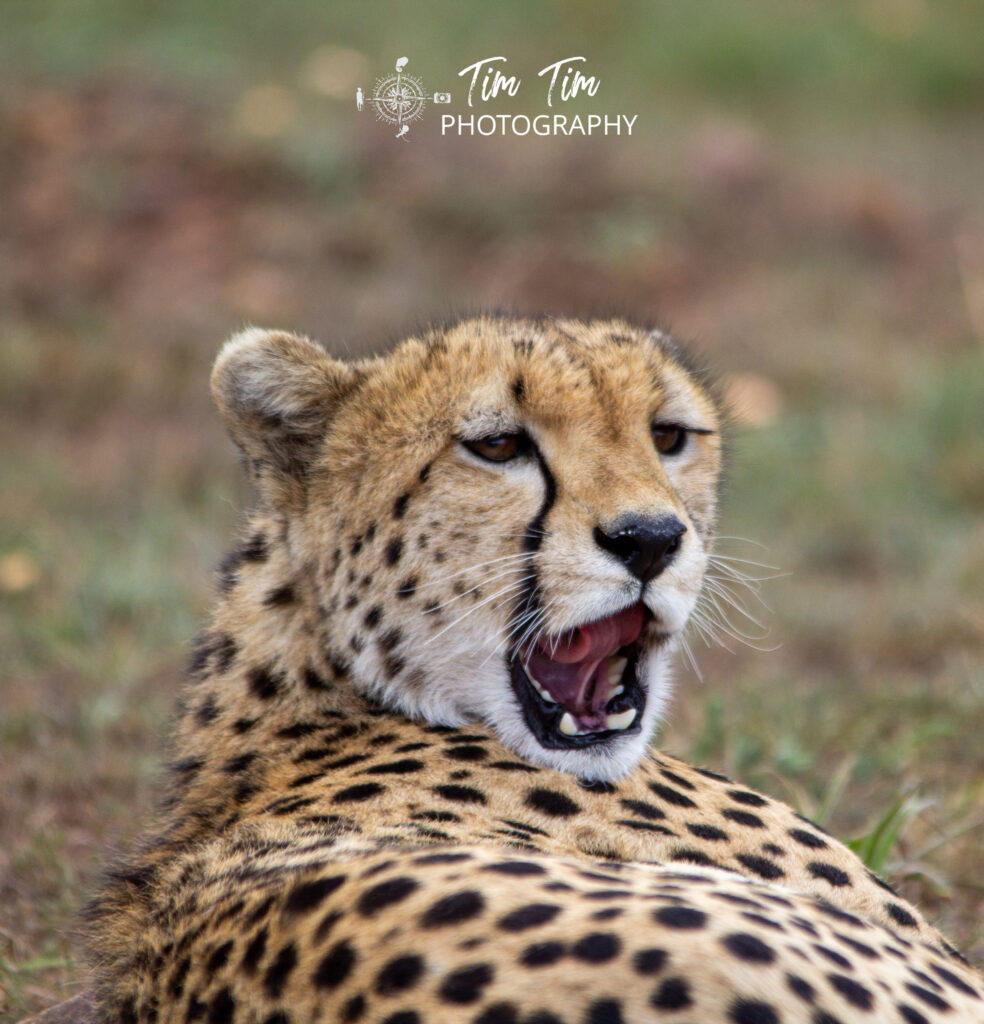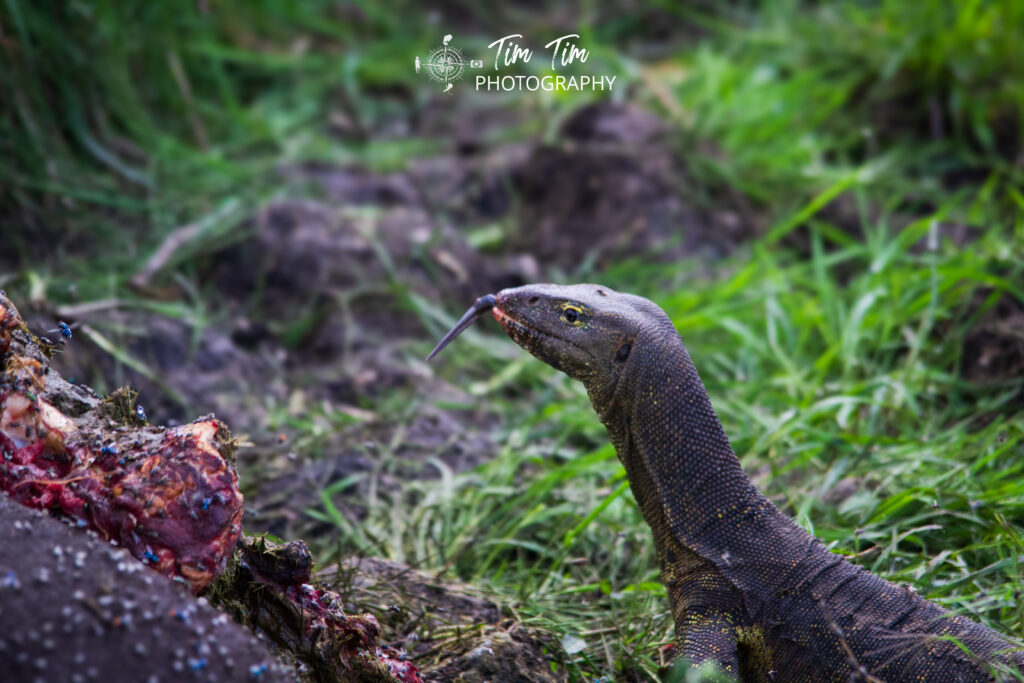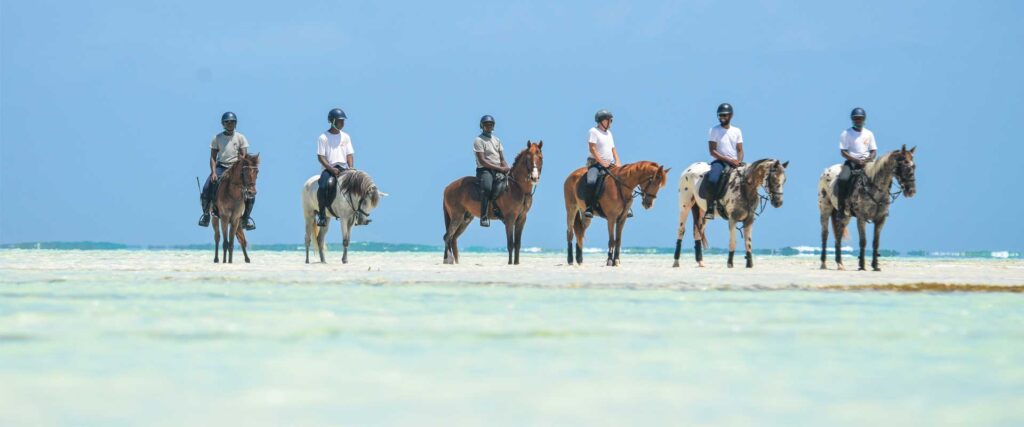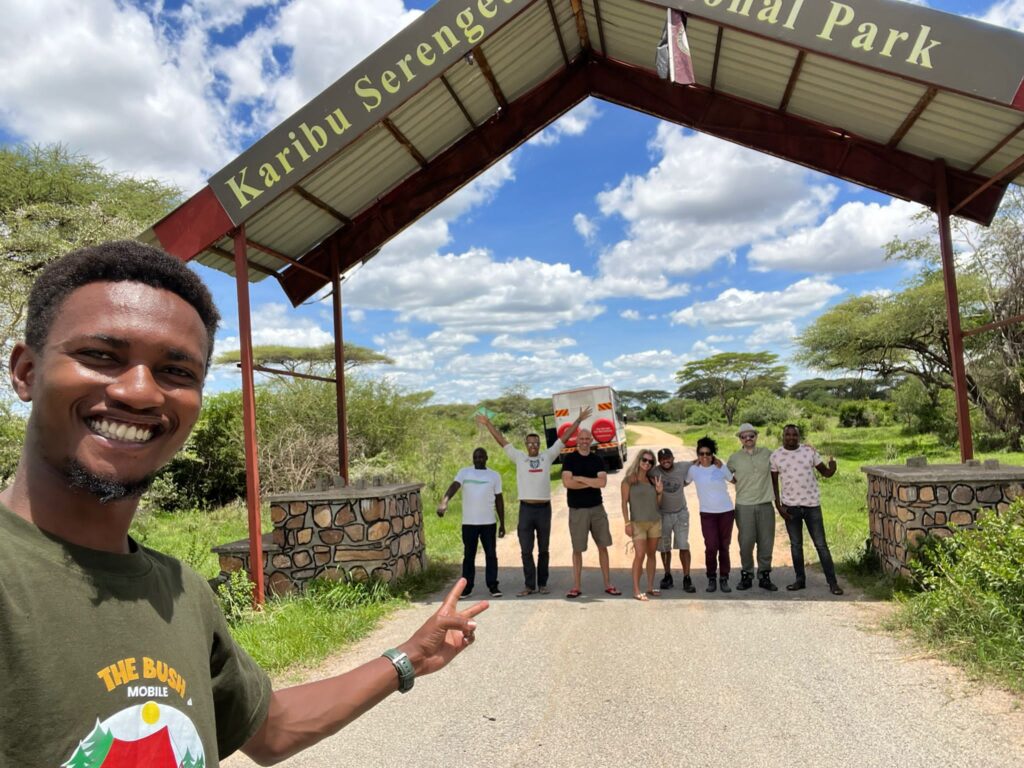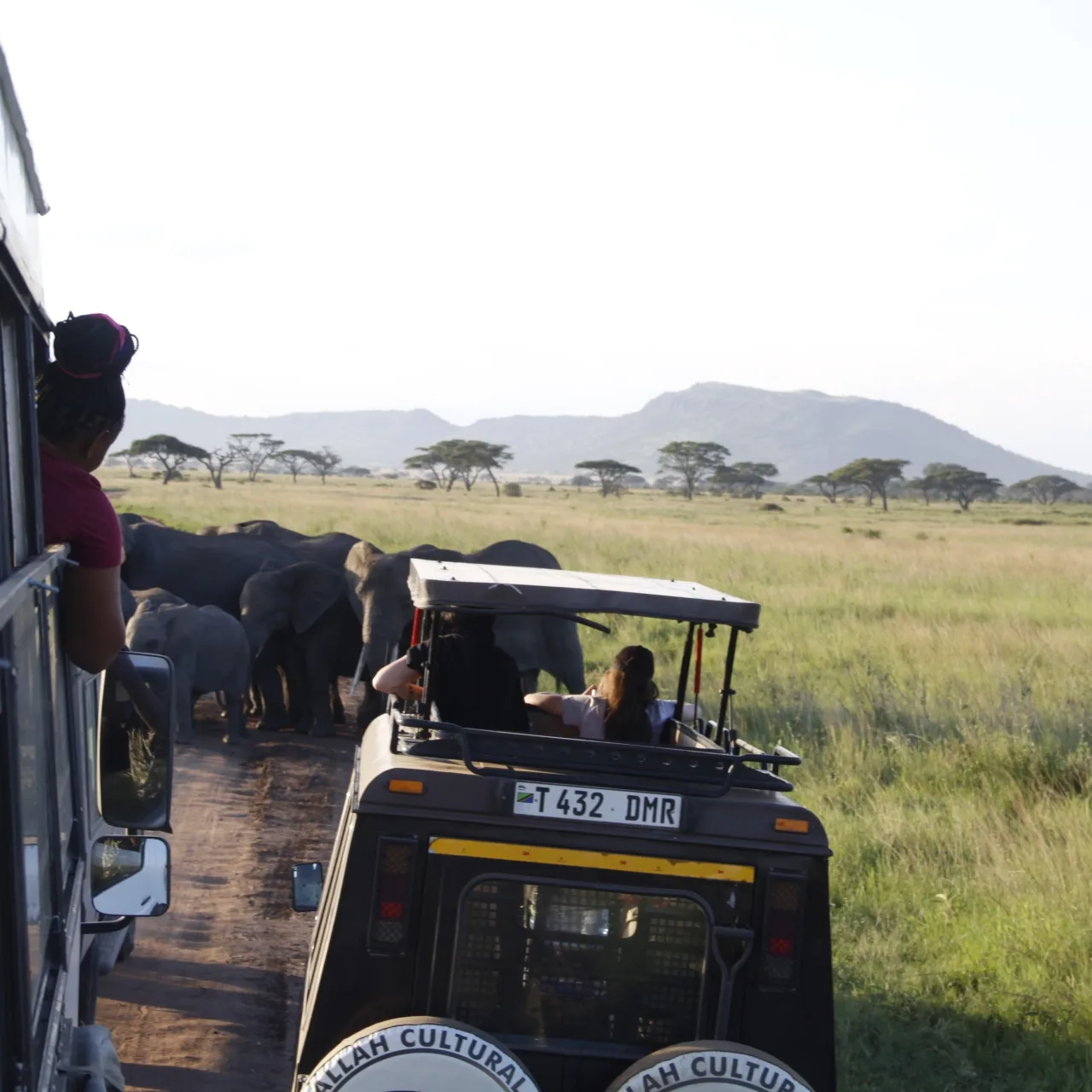
Overview
Tanzania is a true gem of East Africa, and undeniably one of the most sought-after safari destinations on the continent. With its endless wilderness, extraordinary wildlife, and rich cultural heritage, the country offers an unparalleled adventure for nature lovers and cultural enthusiasts alike. From the dense, elephant-filled plains of Tarangire to the vast Serengeti, and from the tranquil beaches of Zanzibar to the historic Maasai villages, this journey promises to immerse you in some of the most magical landscapes and unforgettable experiences Africa has to offer. Let’s embark on an adventure through the heart of Tanzania’s wildlife, culture, and scenic beauty.
Day 1: Tarangire National Park – The Elephant Kingdom
Your adventure begins with an early departure from Arusha, heading to the iconic Tarangire National Park. Known as the “elephant kingdom,” this park is a haven for large herds of elephants, wildebeest, and zebras. The park is especially famous for its incredible leopard sightings, which provide the perfect start to your safari.
Nestled between the Masai Steppe to the southeast and the Great Rift Valley lakes to the north and west, Tarangire is slightly off the beaten path compared to other northern Tanzania parks, but its wild beauty is undeniable. Spend the day exploring the park’s varied landscapes, from its dry riverbeds to the towering baobab trees, offering a truly quintessential African safari experience.
Day 2: Mto wa Mbu – A Cultural Melting Pot
Next, we journey into the heart of Tanzania to the bustling town of Mto wa Mbu, a vibrant cultural hub. Situated on the shores of Lake Manyara, this town is home to over 18 different ethnic groups, making it a rich tapestry of Tanzanian culture.
Today, you’ll take part in an immersive cultural experience, visiting the local banana plantations where you’ll discover the different varieties grown here—more than 33 species of bananas, including the famed Plantains and Red bananas. Learn how the locals make their own unique banana beer and wine, a traditional method passed down through generations. You’ll also visit the nearby Makonde Tribe, renowned for their intricate carvings made from ebony wood, giving you a deeper understanding of Tanzania’s indigenous artistry and craftsmanship.
Day 3: Ngorongoro Crater – The Garden of Eden
Your journey continues as we travel to the Ngorongoro Crater, often referred to as “Africa’s Garden of Eden.” This UNESCO World Heritage site is one of the most unique wildlife environments on the planet. Once a massive volcano, the crater is now a verdant bowl brimming with life, from the endangered black rhino to the majestic lions, cheetahs, and the elusive leopard.
We’ll descend into the crater for an exciting game drive, exploring its diverse ecosystems of grasslands, woodlands, and swamps. Afterward, you’ll head to Karatu, a charming highland town, for a relaxing evening.
Before the day ends, you’ll enjoy a visit to a traditional Maasai boma (village), where you’ll learn about the Maasai way of life and customs. We’ll also take a tour of the famous Olduvai Gorge, known as the “Cradle of Mankind,” where significant archaeological discoveries have shed light on the origins of early humans.
Day 4: Serengeti National Park – The Great Plains
From Ngorongoro, we journey to the world-renowned Serengeti National Park—a place that needs no introduction. With over 14,763 square kilometers (5,700 square miles) of expansive plains, rocky hills, and rolling savannahs, the Serengeti is Tanzania’s largest and oldest national park.
The Serengeti is best known for hosting the Great Migration, a breathtaking natural phenomenon where over 2 million wildebeest, zebras, and gazelles migrate across the plains in search of fresh grazing. But beyond the migration, the Serengeti is a haven for big cats—lions, cheetahs, and leopards roam freely here, offering unparalleled wildlife encounters.
To experience the Serengeti in a completely unique way, opt for an early-morning balloon safari. Floating above the plains at sunrise is an awe-inspiring way to take in the grandeur of the Serengeti while spotting wildlife from above.
Day 5: Serengeti – Deepening the Adventure
On this day, we head further into the heart of the Serengeti, exploring different areas of the park to encounter new wildlife and perhaps witness the thrilling action of predator and prey. Whether it’s a pride of lions lounging in the shade or a cheetah sprinting after its prey, the Serengeti will continue to captivate your senses and fuel your passion for wildlife.
Day 6: Karatu – A Visit to the Hadzabe Tribe
We continue our journey to Karatu, where we meet the Hadzabe, one of the last remaining hunter-gatherer tribes in Tanzania. These fascinating people speak a unique click language and live in harmony with nature, hunting wild game and gathering edible plants with age-old techniques passed down through generations.
Spend the day learning about their ancient lifestyle, watching as they craft tools, hunt with bows and arrows, and gather food. This cultural immersion offers a rare and profound insight into a way of life that has remained unchanged for centuries.
Day 7: Eyasi – Back to Arusha
As your adventure begins to wind down, we head back down the Rift Valley towards Arusha, with a brief stop in Eyasi. Enjoy a relaxing evening in Arusha, where you’ll reflect on the memories of your safari, and perhaps pick up a souvenir or two from the local markets.
Day 8 – A Tropical Paradise
After the adrenaline-filled excitement of your safari, unwind and relax on the beautiful beaches of Zanzibar.
Over the next few days, you’ll enjoy the serene beauty of this Indian Ocean archipelago, with its pristine white-sand beaches, crystal-clear waters, and vibrant coral reefs. Explore the historic Stone Town, a UNESCO World Heritage site, where the rich blend of African, Arab, Indian, and European influences come together in the architecture, cuisine, and culture.
You’ll also have the chance to visit spice plantations, where you can learn about the island’s history as a hub for the spice trade. With plenty of time to relax, explore, or even snorkel in the turquoise waters, Zanzibar is the perfect way to conclude your Tanzanian adventure.
Day 9: Discover Zanzibar’s Spices & Cuisine
Zanzibar’s spice plantations are legendary, and today you’ll immerse yourself in the island’s rich history of spices, from cloves and nutmeg to cinnamon and pepper. A spice tour will allow you to see, smell, and taste the aromatic plants that have made Zanzibar famous throughout the world. Zanzibar’s culinary scene is equally vibrant, influenced by centuries of Arab, Indian, and African culture. Enjoy a traditional Zanzibar cuisine experience, where you’ll sample delicious dishes like pilau rice, seafood curry, and the sweet, tangy flavors of Zanzibari biryani.
Day 10: Head Toward the Northern Beaches – Kendwa’s Inviting Sands
After a cultural day, it’s time to relax on the breathtaking northern beaches of Zanzibar, with Kendwa being a true paradise. The powdery white sands and crystal-clear waters are the perfect escape after your safari adventures. Spend the day lounging on the beach or indulging in some much-needed pampering with a massage at a beachfront spa. For those looking for a bit more adventure, you can explore the vibrant underwater world with some snorkeling or enjoy a dhow sundowner cruise, watching the sun set over the Indian Ocean.
Day 11: Relax and Unwind at the Beach
Your final day in Zanzibar offers the perfect opportunity to simply unwind and enjoy the serene beauty of the island. Spend the day at leisure, whether you choose to lounge on the beach, take a dip in the turquoise waters, or enjoy a leisurely walk along the shore.
1. What is the best time of year to visit Tanzania for a safari?
The ideal time to visit Tanzania for a safari is during the wet season, which runs from November to March. This period offers optimal wildlife viewing, as animals gather around waterholes and the vegetation is less dense. For those interested in witnessing the Great Migration, the best time to visit the Serengeti is from February to April when the wildebeest prepare to cross the Mara River on Kenya’s Maasai Mara. For those looking for lush landscapes and fewer crowds, the green season (November to March) is also a great time, especially for birdwatching.
2. What is included in this safari experience?
This Tanzania safari package includes:
Excursions such as the Olduvai Gorge visit, Maasai village tour, and spice plantation tours in Zanzibar.
Game drives in iconic national parks (Tarangire, Serengeti, Ngorongoro Crater).
Cultural encounters with local tribes, including the Maasai, Hadzabe, and Makonde.
Accommodation in comfortable lodges and tents, with stunning views of the parks.
All meals during the safari (breakfast, lunch, and dinner).
Transportation by safari vehicle with a professional, English-speaking guide.
3. How much physical activity is involved in this safari?
The safari is designed to be moderate in activity. Most of the time will be spent on game drives in vehicles, but some excursions may involve short walks (such as village visits or cultural tours). If you’re visiting tribes like the Hadzabe, you may walk short distances to observe their daily life. In Zanzibar, there’s an option for snorkeling, swimming, or light hiking on the beaches, but it’s very much a laid-back experience overall. This is a perfect trip for anyone looking for an active yet relaxed adventure.
4. What type of wildlife can I expect to see during the safari?
Tanzania’s national parks are teeming with incredible wildlife. Expect to see:
Birdlife: Tanzania is a birdwatcher’s paradise, with hundreds of species, including flamingos, ostriches, and African fish eagles.
Big Cats: Lions, leopards, and cheetahs are common sights in the Serengeti and Ngorongoro Crater.
Elephants: Tarangire is known as the “Elephant Kingdom,” and herds of elephants are often seen throughout the parks.
Wildebeest & Zebras: These are the stars of the Great Migration in the Serengeti.
Rhinos: Black rhinos are commonly found in Ngorongoro Crater, one of the last safe havens for this endangered species.
5. Is this safari suitable for children or families?
Yes, this safari is suitable for families with children. Children of all ages can enjoy the game drives and cultural experiences, although it’s important to note that some activities (like the Hadzabe tribe visit) may be more suited for older children. It’s a great opportunity to introduce children to the wonders of wildlife and diverse cultures. For younger children, special arrangements can be made to ensure their comfort and enjoyment.
6. What vaccinations or health precautions are required for a Tanzania safari?
It’s recommended to consult a travel health professional about necessary vaccinations and malaria prophylaxis before traveling to Tanzania. Common vaccinations may include:
Malaria prevention (depending on your travel dates and locations). Make sure you bring a personal first-aid kit, sunscreen, and insect repellent.
Yellow Fever (required if coming from a country with risk of yellow fever).
7. What is the accommodation like during the safari?
Accommodation varies depending on the region and location:
Tented Camps: Semi-luxury camps that offer a more immersive safari experience, with private tents and all the comforts of home (such as hot showers, beds, and full meals). The accommodations are carefully selected for comfort, relaxation, and authenticity, providing a perfect blend of adventure and luxury in the heart of the wilderness.
Safari Lodges: Comfortable lodges with modern amenities and stunning views, often with en-suite bathrooms, pools, and excellent dining.
8. Will I have access to Wi-Fi or mobile service during the safari?
While most accommodations in major towns like Arusha and Zanzibar offer Wi-Fi, Wi-Fi access in remote safari areas is typically limited or unavailable. This is an opportunity to disconnect and immerse yourself fully in the experience. Mobile service can be spotty in remote areas, but it’s available in most towns and major parks.
9. What’s included in the Zanzibar extension?
The Zanzibar extension is a fantastic way to unwind after your safari. It includes:
Time to relax on Kendwa Beach with options for snorkeling, massages, or enjoying a dhow sundowner cruise.
Accommodation on the idyllic beaches of Zanzibar, offering access to the island’s serene coastlines.
Cultural tours of Stone Town, where you can explore the narrow alleys, historical sites, and the fascinating mix of Arab, African, and European influences.
A spice tour, where you’ll learn about Zanzibar’s rich history as a spice hub.
10. Do I need a visa to visit Tanzania and Zanzibar?
Most visitors to Tanzania will require a tourist visa. You can obtain a visa on arrival at the airport or apply online through the Tanzanian government’s e-visa portal. Be sure to check the visa requirements based on your nationality before traveling. Zanzibar is a part of Tanzania, so the visa requirements are the same for both.
Effective November 2024, the Government of Zanzibar requires every traveler to purchase Insurance through Zanzibar Insurance company for their stay In Zanzibar.
11. What should I pack for the safari and Zanzibar?
For the safari:
Sunscreen and a hat for sun protection.
Light-colored clothing (beige, khaki, or light green) to blend with the environment.
Comfortable walking shoes for cultural tours and village visits.
Sun protection: sunglasses, sunscreen, and a hat.
A light jacket for early morning and evening game drives.
Binoculars and a camera for wildlife photography. For Zanzibar:
Beachwear, including swimwear, flip-flops, and a cover-up.
Light, breathable clothing for hot days and evenings.
Snorkel gear (if you plan to snorkel) or you can rent locally.
12. How much tipping should I budget for during the safari?
Tipping is customary in Tanzania, and your safari guide, hotel staff, and other service providers appreciate tips for their hard work. Here’s a general guide:
Porters: $1-2 USD per bag. Tipping is not mandatory, but it’s always appreciated for excellent service.
Safari guide: $10-15 USD per day, per person.
Hotel/restaurant staff: $1-2 USD per person, per day.
13. Is this safari suitable for solo travelers?
Absolutely! This safari is perfect for solo travelers who want to experience the magic of Tanzania. You’ll be joined by a group of like-minded adventurers, and our guides will ensure that you feel welcome and included at every step. Whether you’re passionate about wildlife, culture, or just seeking a new adventure, Tanzania offers something for everyone.
- Based on shared 4 Star accommodation

